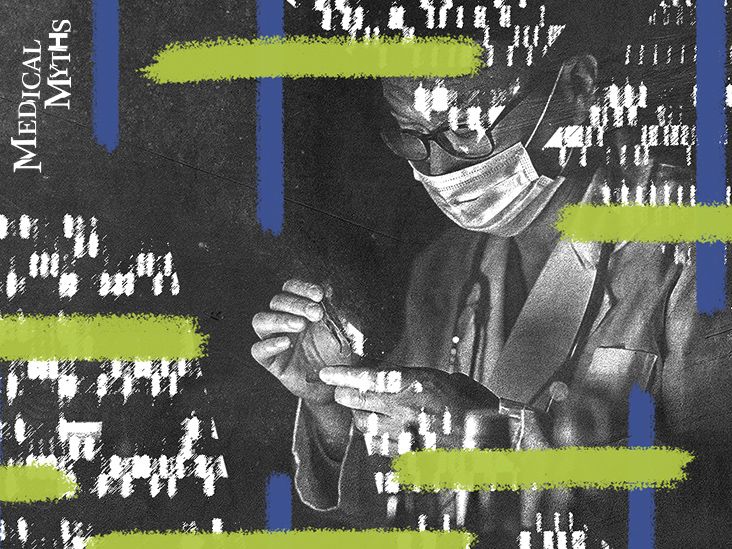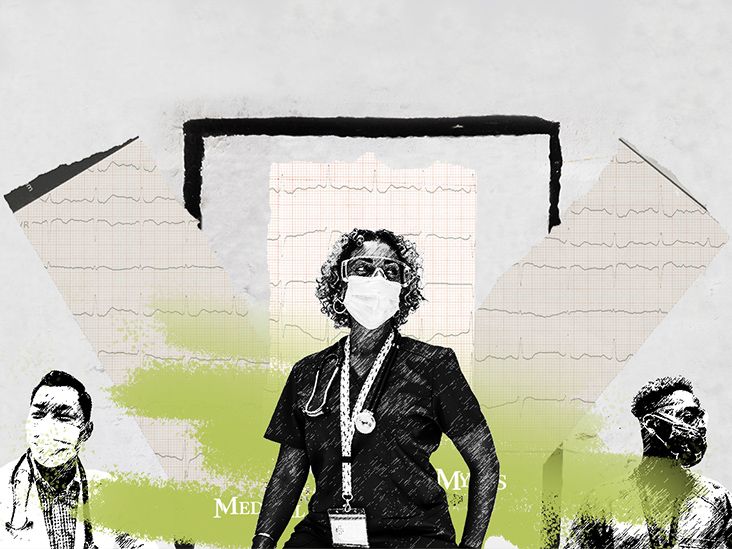
IBD is a condition that affects the gastrointestinal system. The symptoms often include abdominal cramps, bloating, constipation, and diarrhea.
The symptoms can fluctuate and may last for days, weeks, or months at a time. In 2015, an estimated
Globally, the disease affected an estimated
The most common forms of IBD are Crohn’s disease and ulcerative colitis. Both involve chronic inflammation of the digestive tract.
Despite the relatively high prevalence of IBD, a great deal of misinformation and misunderstanding surrounds it.
Here, we fight fiction with facts. To aid us on our quest, we have enlisted the help of Dr. Abhik Bhattacharya, assistant professor of medicine in the Division of Gastroenterology at the Icahn School of Medicine at Mount Sinai, NY.
IBD and irritable bowel syndrome (IBS) both affect the digestive system and have similar acronyms. This, perhaps, explains some of the confusion. However, the two conditions are not the same.
Dr. Bhattacharya explained to Medical News Today that IBS “is a disorder of the interaction between the gut and brain, leading to diarrhea, constipation, or both, along with bloating and pain. [It] can be worsened or precipitated by stress and anxiety.”
Conversely, he continued, IBD “is a disease of a dysregulated immune system, wherein the immune system starts attacking your own gastrointestinal system, leading to damage.”
“The disease can lead to stress, worsening anxiety, depression, and loss of sleep because of the devastating consequences it can have on a person’s daily functioning,” he said. “Symptoms can include bleeding in stools, diarrhea, severe belly pain, unintentional weight loss, fevers, chills, rectal pain, fatigue, and more.”
IBD is driven by the immune system, so stress is not the direct cause. However, as Dr. Bhattacharya explained, it “can make life very stressful.”
Stress can
Some small, decades-old studies have investigated the links between personality traits and IBD. However, when MNT asked Dr. Bhattacharya whether there are any links between a person’s character and IBD, he put it succinctly: “There are none that we know about.”
Crohn’s and ulcerative colitis are the most common forms of IBD. However, they are distinct conditions, and people cannot have both.
“You can either have Crohn’s disease or ulcerative colitis,” said Dr. Bhattacharya. “However, in a very small subset of patients, it is hard to determine whether they have Crohn’s or ulcerative colitis. The disease, however, does reveal itself over the course of a patient’s lifetime.”
Thankfully, this is untrue. “There are many treatments that are extremely effective for IBD. Depending on what you have and how severe the disease is, we have a plethora of options for medical treatment,” explained Dr. Bhattacharya. He then outlined some of the available interventions:
“These include, but are not limited to, biologic medications, such as Remicade [infliximab], Humira [adalimumab], Cimzia [certolizumab pegol], Simponi [golimumab], Entyvio [vedolizumab], and Stelara [ustekinumab], or small molecules like Zeposia [ozanimod] and Xeljanz [tofacitinib]. These are potent immunosuppressant medications, and we are constantly developing new medications through clinical trials.”
“No, everyone does not need surgery,” Dr. Bhattacharya told MNT. He explained that in the past, a majority of people with IBD would have undergone surgery.
However, “with the advent of very effective and safe immunosuppressant medications,” rates of surgery have dropped significantly over the past 20 years.
According to Crohn’s & Colitis UK, about 15% of people with ulcerative colitis will need surgery 10 years after diagnosis. However, in agreement with Dr. Bhattacharya, the organization notes that the improved treatments available mean that this percentage is reducing.
“The goal of treatment,” Dr. Bhattacharya said, “is to prevent surgery due to complications of bowel damage.” He advocates for early treatment with potent medications soon after diagnosis. This, he explained, prevents damage, thereby removing the need for surgery.
This is not true. “Most IBD medications are very safe during pregnancy,” said Dr. Bhattacharya.
He explained that the goal is to keep people with IBD in remission during pregnancy “because the worst thing to happen for both baby and mother is for the disease to be active.”
“We have gathered, and continue to gather, a large amount of data regarding the safety of medications during pregnancy.”
– Dr. Bhattacharya
There is an important exception, though: methotrexate. Dr. Bhattacharya told us that methotrexate “is stopped even when women with IBD are planning to get pregnant.”
Once drugs for IBD take effect and the symptoms disappear, it can be tempting to stop taking the medication. However, this is not what doctors recommend. Dr. Bhattacharya told MNT:
“At this moment, we don’t have a good way of stopping medications for patients with IBD in remission. […] We don’t recommend stopping medications.”
He explained that ending treatment can have serious consequences. For instance, the symptoms might come back, and if the person restarts on the same treatments, these may not work.
“While we do have options when it comes to treatment,” he said, “those options are not limitless, and we don’t want to run through medications. There is good data to support that when […] one set of IBD medications [fails], your response to another type may be less likely.”
As Dr. Bhattacharya told MNT, a “gluten-free diet works for [people with] celiac disease and non-celiac gluten sensitivity,” but it will not benefit those with IBD.
Although, as the name suggests, IBD significantly affects the bowel, the disease can also have ramifications on many other parts of the body.
“Apart from the gastrointestinal system, which includes the mouth to the anus, IBD can have extraintestinal manifestations like affecting the skin, eyes, and joints, to name a few,” said Dr. Bhattacharya.
According to a
For instance, IBD can affect the musculoskeletal system, as well as the eyes, kidneys, and lungs. It may also damage the
At this time, there is no cure for IBD. However, as Dr. Bhattacharya said, “this is a work in progress.”
Researchers are working tirelessly to understand the condition better so that they can design better treatments and, perhaps one day, a cure.
This, thankfully, is a myth. “They absolutely can,” confirmed Dr. Bhattacharya. “With proper medical management and, sometimes, surgeries, IBD patients can live a completely normal life.”
“We have lawyers, doctors, sportsmen, actors, comedians, rock stars, and Presidents — Eisenhower and John F. Kennedy — who have [or had] IBD and lived more than a functional life.”



